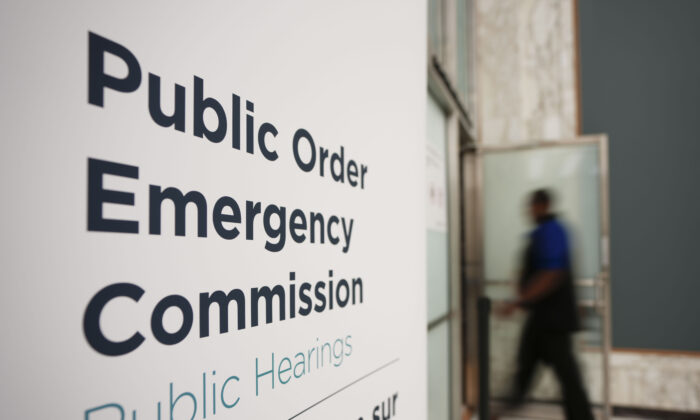The demand to do more to protect vulnerable women is understandable. But there’s also a price we pay for knee-jerk responses.
Commentary
People everywhere are calling for something to be done following the tragic death of Molly Ticehurst at the hands of her ex-partner who was out on bail facing various domestic and sexual violence allegations.
Chris Kenny on Sky News was quick to blame the magistrate for allowing bail to the alleged offender, during an interview with the New South Wales (NSW) Shadow Police Minister Paul Toole.
Mr. Toole called for a complete overhaul of bail laws to ensure that even fewer accused men are given bail. The NSW government has already caved in and announced a review.
Every time a crime is committed by someone on bail, we see similar demands for tightening the laws to ensure that everyone accused of any serious crime, particularly domestic violence, is safely locked away.
The demand to do more to protect vulnerable women is understandable. But the price we pay for knee-jerk responses to a very complex issue is that thousands of, both legally and factually innocent, men are locked up.
It is very easy to argue that there will never be an offence committed by a person on bail if nobody is ever granted bail. But the true cost of such a position needs to be understood.
Sure, we can reduce the risk of offending by removing bail as an option. In fact, we can absolutely ensure that all persons suspected of committing a crime are summarily convicted, just by removing the right to a trial.
But do we want to live in such a place?
Locked Up Before They’re Heard
Right now, across this country more than a third of men in Australian prisons haven’t had their case determined by a court.
As a result of demands for bail reform, an increasing proportion of our prison population now find themselves awaiting trial. On remand and locked up in vile conditions with violent, dangerous people. Shut away for months, sometimes even years before their cases are determined.
In national trends, the number of unsentenced people in custody almost doubled, reaching 16,000 in the past decade.
The proportion continues to go up—with a 15.5 percent increase in the last five years. In NSW, an astonishing 42 percent of prisoners are now on remand.
“They are presumed to be innocent and a lot of these offences are not offences where, if they were convicted, they would necessarily go to jail,” comments Lorana Bartels, a professor of criminology at the Australian National University and a feminist who mainly advocates on behalf of female and indigenous prisoners.
Her focus is ironic, given that most of the recent astonishing increase in people being remanded in custody is for “feminist offences”—any offences allegedly committed by males against women.
In NSW, the overall remand prisoner population has increased by 74 percent in the last 10 years and is now 92 percent male.
Naturally, our captured media plays down the fact that men are most impacted.
The crimes the feminists have targeted—sexual assault, domestic violence, intimidation/stalking—make up 98 percent of the increase in remand prisoners in the last four years, according to BOSCAR data.
Domestic violence and sexual assault account for 83 percent of the increase.
Of course, there are shocking cases of women on remand—like Maree Mavis Crabtree, the Queensland woman who was recently released after six years behind bars. Bail had been refused after she was accused of killing her son with a poisoned fruit smoothie.
But these cases are the exception.
Horrific Conditions
We never hear about the men now routinely imprisoned without a trial after accusations of domestic violence.
For every two men in prison who have been convicted of domestic violence, there are three who have been charged but not tried.
No actual evidence is required to make a domestic violence accusation and have a man charged.
A mere allegation by an angry ex-spouse is often sufficient to obtain an apprehended violence order and then, by alleging a few breaches of that order, put into jail.
The same applies to sexual assault, as we have seen from five judges’ comments in NSW which led to the audit of current rape cases.
Two years ago, a man—I’ll call him “Peter”—achieved a substantial malicious prosecution payout from NSW police and prosecutors after he was arrested at the airport and taken straight to prison on the basis of his ex-wife’s false rape allegation—an allegation eventually disproved when he produced video evidence of her very obviously enjoying intercourse with him.
Peter spent a terrifying month in prison on remand, surrounded by frightening men: “You are permanently on edge.”
He was initially put into a cell where the toilet was full of vomit, overflowing onto the floor. Hideous food, sadistic guards. He lost 15 kilos in the month he was imprisoned.
“They are treated like animals. Life in jail is appalling. It is awful in ways that most people could never imagine,” comments a NSW criminal lawyer.
“People in jail live in the midst of violence. People are arbitrarily attacked and often severely injured.”
A young Sydney man certainly can vouch for that. The 22-year-old had been in a sexual relationship with an older woman who had a porn business. When they fell out, she accused him of rape and choking her, and trying to suffocate their baby.
The appeal case was handled by high-profile criminal barrister Peter Lavac, and ultimately thrown out.
“Her lies were exposed after 55 minutes of cross-examination,” Mr. Lavac explained.
When she refused to resume cross examination, the crown was forced to withdraw all 10 charges.
But this guy had initially had his bail refused and spent 18 months in prison on remand. During that time, he was gang raped several times.
Where Does This All Lead to?
We’ve already seen reforms of bail laws, in 2013 and 2021, which resulted in the presumption of bail being removed for some offences, applying a “show cause” test that puts the onus on people charged with the most serious offences to justify why they should be given bail.
Only sexual offences involving minors are on the current list, but, in reality, bail is now refused for most sexual assault offences. Now the push is on for all sexual assault offences to be included in the “show cause” list.
When it comes to domestic violence, in the current culture, most magistrates err on the side of caution—“in case something happens.” Meaning—no bail if there is any risk of violence.
The consequence of these changes to bail laws is that the rate of bail refusals has increased by 47.3 percent over the last nine years according to NSW’s crime statistics bureau.
In 2019, an ACT man, Atem Deng sought damages for false imprisonment after an ACT Supreme Court threw out a domestic violence-related charge which led to him being imprisoned on remand for 58 days. The experience was horrendous, including a full-body cavity search, and having his life threatened by a cellmate.
The Court of Appeal dismissed the damages claim stating that locking up this innocent guy was “the system working, not failing.”
The writing is on the wall—and it is very scary.
Views expressed in this article are opinions of the author and do not necessarily reflect the views of The Epoch Times.














 English (US) ·
English (US) ·  Turkish (TR) ·
Turkish (TR) ·